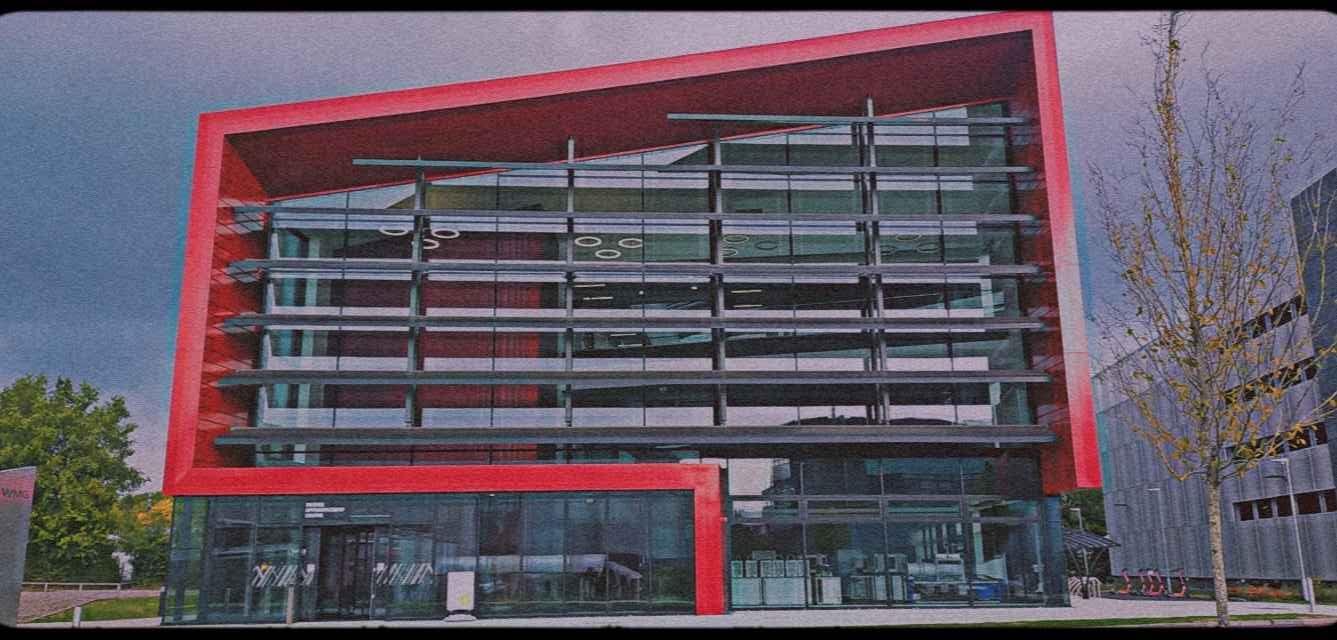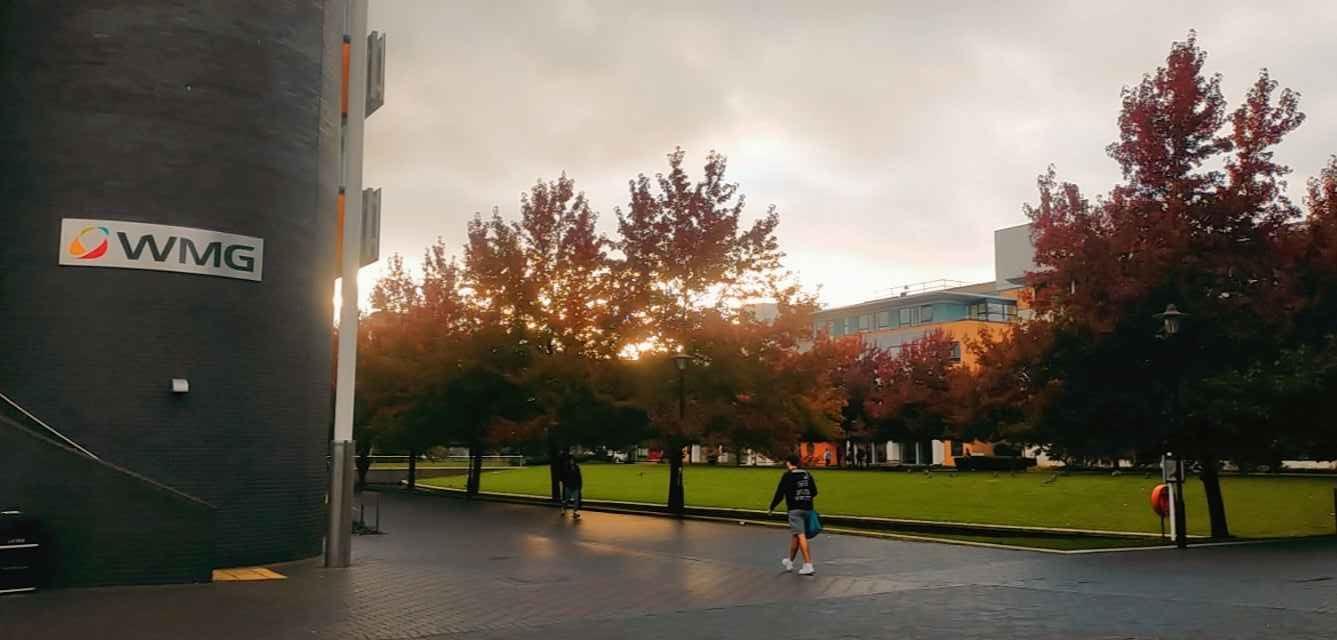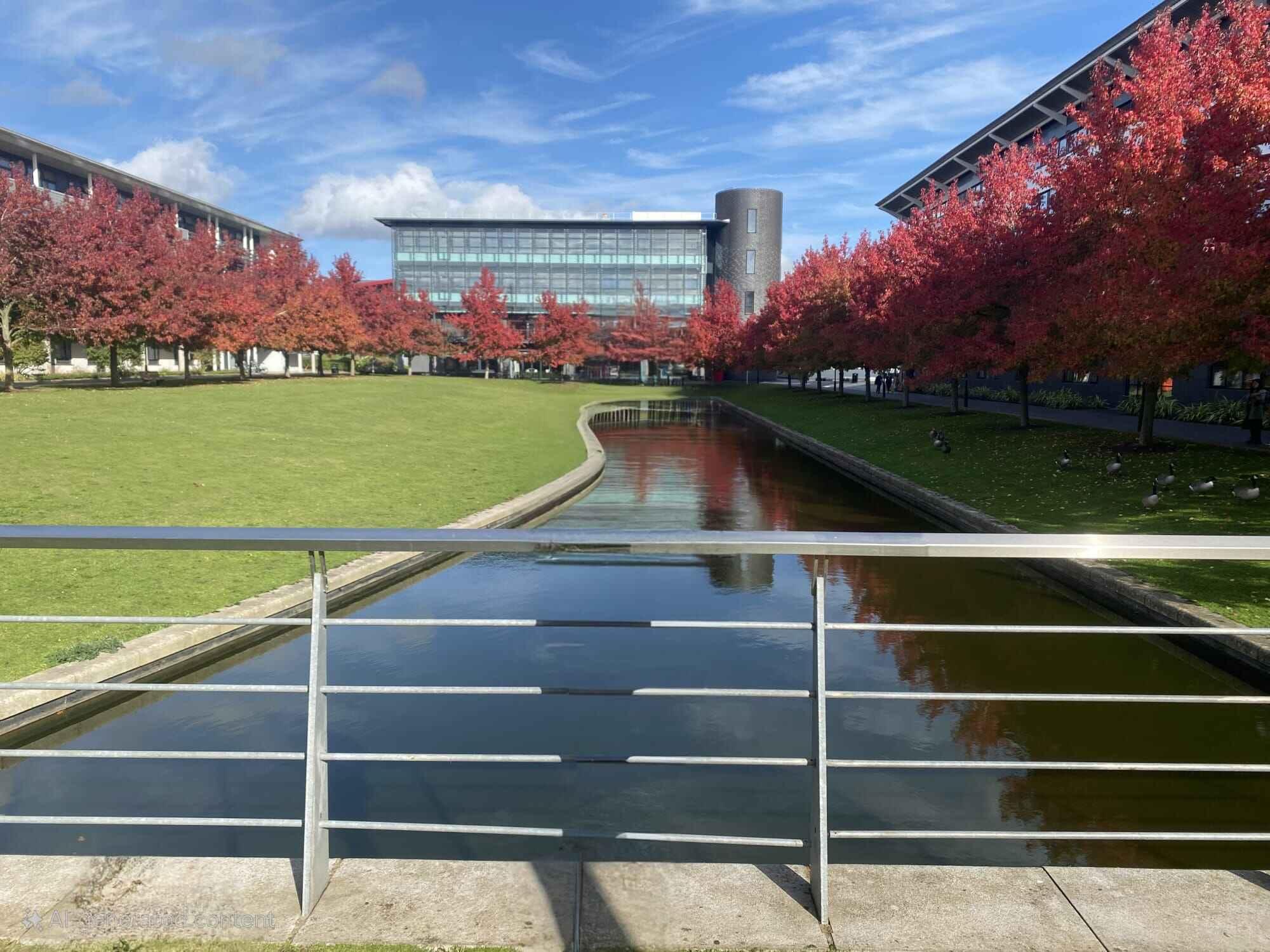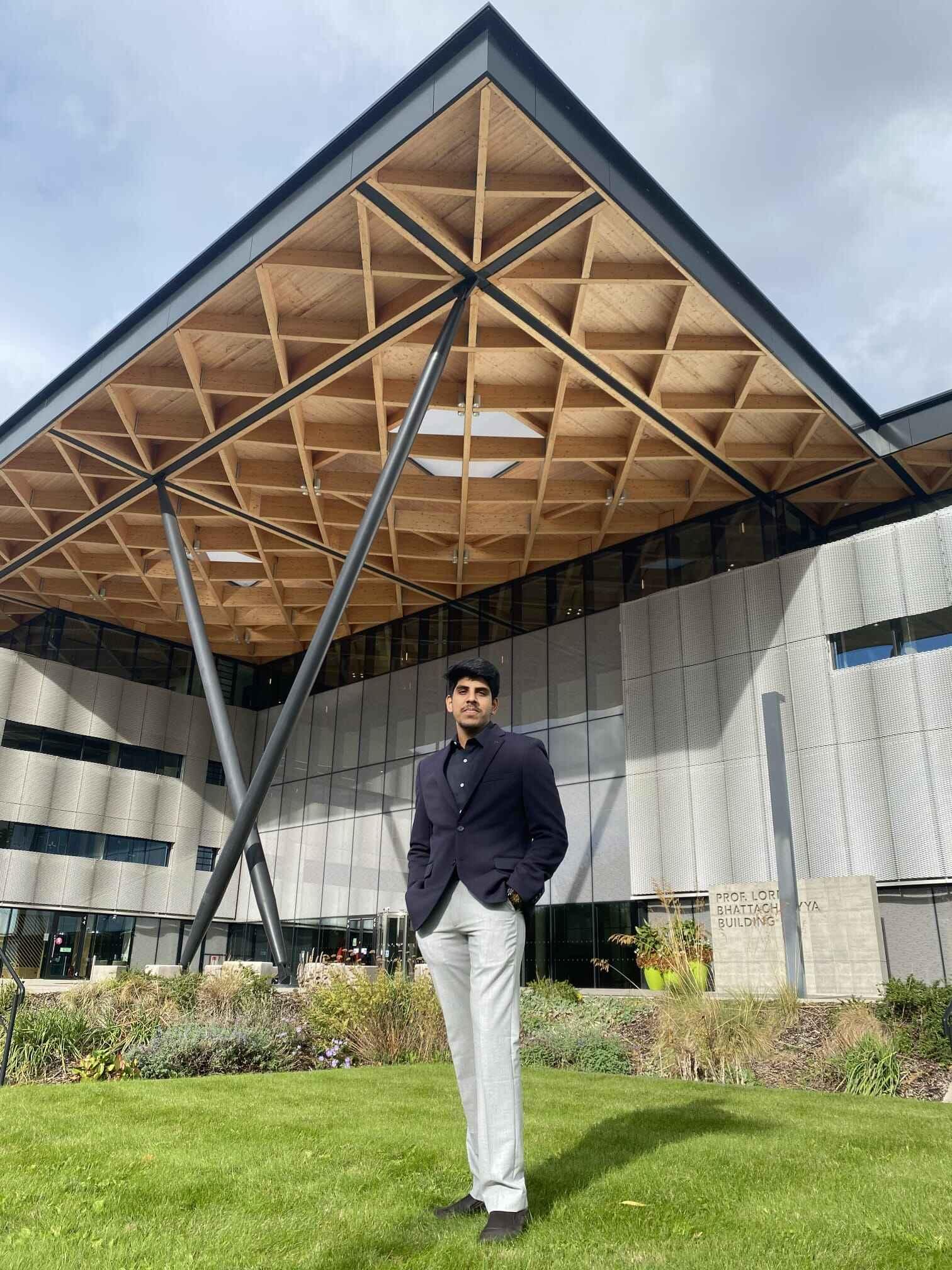What Students Say
Likes
- The infrastructure of the university is amazing such that no two building would look the same. Despite that, every departments (WMG, WBS etc) facility are very unique and specific to those. The lake closer to WMG buildings are for all students of Warwick but sometimes you feel connected to it since you have classes every day, you see all 4 seasons of weather occurring by the trees as they start to change colour from red to yellow, wither off and grow again.
- The centre of the campus will always be my favourite where all events, food stalls happen every week. Also to note, there will be always something interesting happening every day – could be small art gallery, dance festival et.
- Networking events – As a Warwick student, I am lucky to attends many networking events with various companies of different sizes and different roles. During the induction period, networking sessions happen every day for roughly 1.5 months and still continues to happen later but as in weekly once.
Dislikes
- Certain modules (SFEO), I had replacement teacher teaching that module and wasn’t happy to how the first batch was taught. Though, every teacher teaches differently, SFEO was more of one way communication, a lecture where they was no interactive session at all.
- Modules likes BDAI were taught as literal lecture with 70 slides per day, no interaction between teacher and student. Despite that, there was no prerequisites for the module which meant that everything taught made zero sense to most of the students. It was so advanced directly focusing on advanced machine learning and algorithms. I wish it was more structures.
- I really wished the program I studied was given a placement year option since the program itself is very generic as you cover all subjects on the surface level. For example - Compared to people who do specialization in supply chain and studying supply chain on very basic level plays a significant role while applying for jobs.
Course Curriculum
- Overall, the course was mix of both practical and theory based. The modules were not hard to understand but had some topic I was never aware of and was lot confusing and took while for me to understand. Some modules had more practical classes than theory based so was pretty fun and easy to learn while some were lecture/theory only class.
- Positive aspect – Teamwork with random people on any assignments or situation specific task was very fun.
- Negative aspect – Some were unstructured, unorganized and not interactive.
- Basically the group was divided into 4 batches each 30 students – 2 baches had one modules while other 2 had different. The class timings vary the same for the batches that had same module – one week 1st batch would have 9–12pm class while other would have 1-4pm class. But this timing would be swapped the next week and also depend on the module leader.
- In terms of faculty members assisting students in finding jobs, I would yes – they provided reviews of some CV and provided some companies names where we could apply.
- Jane Marshall was the best faculty member I admired the most, she was my first module leader. Starting from day 1, it was always fun where we had lot of teamwork, games and the way the modules was taught it was very easy to understand. She kept the class very engaging and interactive.
Admission Experience
- I had applied to 9 Universities ranging from hard acceptance to easy universities namely King’s College, University of Warwick, University of York, Nottingham Trent University, University of Birmingham, Swansea University, University of Exeter, Aston University, Heriot-Watt University. I am really surprised and happy to say I was never rejected in any unis and got a confirmed offer letter from all.
- I choose University of Warwick over those mainly for 3 reasons -
- 1. Russel group uni preference for me
- 2. The total ranking of uni both in global and within UK
- 3. How great is the engineering department at that uni.
- I really wanted to study at King’s but I received my offer quite late around March by then I had already paid my deposit at Warwick. Also the cost of living in London would have been 3 times the Cost of living in Coventry.
- The admission process was pretty easy – fill out basic applications, your marksheets from all semesters, SOP, IELTS - 6.5 and LOR. I don’t remember much but I believe this is all needed.
- The application process was pretty easy for me since an agency applied for me – I just had to send them all my documents, SOP and IELTS and let them know which uni I wanted to apply and which program. It was free of cost which made the process much convenient for me.
- I did apply to September 2022 intake and in term so factors – Cost, Uni Ranking, Job opportunities, Activities to do at the place whether it is safe, lively.
- I think the whole admission process took about 3-4 months and it depends on how early you apply as well. I applied very early and was given results quicker.
- Rough Timeline –
- 1. July:
- Wrote my IELTS exam early so I don’t have to wait during the application process nor have to take it at last moment
- 2. August:
- Collected all documents – all semester mark
- 3. September:
- Finished my SOP and got it reviewed through my agency, got 3 LORs approved from professors.
- 4. October:
- Started to apply for unis
Faculty
- The average student in a batch would be ideally 30 people. Though our course had diverse people, we had the majority being Chinese, followed by Indians and a few other international students. I can’t say the accurate number of Indian students in a course but roughly 30-40 people. The faculty-to-student ratio was 1:30, which isn’t bad because the room we were taught in was huge and spread across so there was more visibility for staff to see and students to be seen compared to having a massive lecture of 120 students to 1 staff.
- The teaching methodology is engaging with students such that a slide would be taught followed by a question asked to students and vice versa. There was a lot of pause during the class so it didn’t feel overwhelming.
- To be honest, NO, the course content did not help me with getting the job; though it provided insights on what the field would look like, I got the job mainly due to my experience.
Campus Life
- In terms of campus at uni, I believe there are quite a lot of buildings – Business School, Engineering, Medicine, Law, Social Science, Arts etc. They are unlike other universities which are usually spread across the city. It is all located in one massive area but divided by departments.
- There is a massive library at uni with 9 floors – accessible to all students, a big sports field on either side of university one being a sport building which has beautiful swimming pool, squash areas, a huge badminton areas where 12-15 courts are available, gym, rock climbing as well. On the other side, there is big sports field for athletic activities.
- There are n no of clubs – anything you might thing is available there from calisthenics, gymnastics, book reading, arts, gaming club and so many more.
- I can’t remember any particular facility as I have been involved in a lot of cultural festival than sports.
Part Time Jobs
- I can’t really answer the first question as I didn’t apply for any job internally and did apply for most closer to accommodation. A rough guess would be £14 per hour and as an international student, you can only work 20 hrs per week no more than that.
- Other on-campus jobs would be at café, bar, social media manager etc.
- It is relatively quite harder to get a job on campus as they will be heavy competition and will have relevant ppl applying with better experience.
- Most Indian student tend to get a job outside campus and closer to accommodation and the pay in most cases would be minimum wages set for the year. It is really difficult to get a part time job and wouldn’t recommend for students who are very dependent on that salary to pay off their uni fees. Standard process – apply through indeed, fill in your basic details, you will need your National insurance no (you’ll need to register at gov website), share code (can be obtained from gov website), resume. Right after resume selection is right to work check which will ask to fill in visa details such as max hours you can work, share code, NI no. and then interview.
Placement
- I would strongly say less than 50% of students get jobs after completion within the first 6 months, as it is quite competitive here.
- The average salary for a graduate role would be £30,000 but can go as low as £24,000.
- You can find jobs either through applying at the company website, Glassdoor, third-party job prospect websites, or sometimes through networking. There is no such thing as campus recruitment here in the UK. You’ll have to apply independently.
- Many of my batchmates are highly experienced compared to me and have jobs in various domains, from electronics roles to operations, supply chain, mechanical roles, AI data, etc. Companies like Siemens, Currys, Tesco, BAE System, Severn Trent, etc.
- Major companies that used to hire massively were JLR, KPMG, PWC, and so on. Now the chances are quite closer to zero for international students due to visa restrictions
Accommodation
- I found my accommodation (IQ Weaver) through Google search and a couple of websites that aid you in finding student accommodation (not sure which one specifically).
- I paid roughly £600 a month for rent, which is an ensuite (bedroom + bathroom) and the kitchen was shared. The accommodation was really the best out there for me because it had a big common area—big enough to host a massive party for example—and had pool tables and vending machines. The gym at the accommodation was more than enough to get trained; it also had gaming rooms and the best thing—cinema rooms, which can be booked and watched with friends outside the accommodation.
- I didn’t seek out recommendations; I just read through Google reviews to see how good it is.
- My accommodation was roughly 30 minutes by bus from the university, and most Indians, I believe, either stayed at IQ Weaver or Calcot Accommodation, which was much cheaper than mine
Exams
- I did take only one exam – IELTS which was not mandatory to the any of the universities I had applied. But I did take it just to have no risk at last moment.
- Documents needs:
- 1. Statement of Purpose – describing why you applied for this course, why this uni, your extracurricular activity, your interest
- 2. LORs – 2 were needed for university from different professors at my undergraduate college
- 3. Marksheets – All semester marksheets of undergraduate studies, 12th and 10th marksheet
- Luckly, there was no interview process needed for any uni.
Fees
- The tuition fee was £30,000 for the entire course. It can be paid in installments or in 3 instalments every 4 months. I didn’t stay at the Uni hostel so my accommodation was around the city centre, which was a little cheaper compared to the hostel.
- Coventry is a cheaper place to live so I would add about £6,000-8,000 per year, including expenses, if you live in the city centre as a student.
- Rent: £600 per month
- Transportation: £34 (monthly pass)
- Groceries: £300 per month
Scholarship
- I didn’t receive any scholarships during my study.
- Many of my batchmates had received scholarships, which roughly ranged from 10 to 30%. I am not sure about the average scholarship given each award amount, but I believe about 20 students must have received scholarships, and each was different, some being Commonwealth, Entrepreneurial, and country-specific as well.








